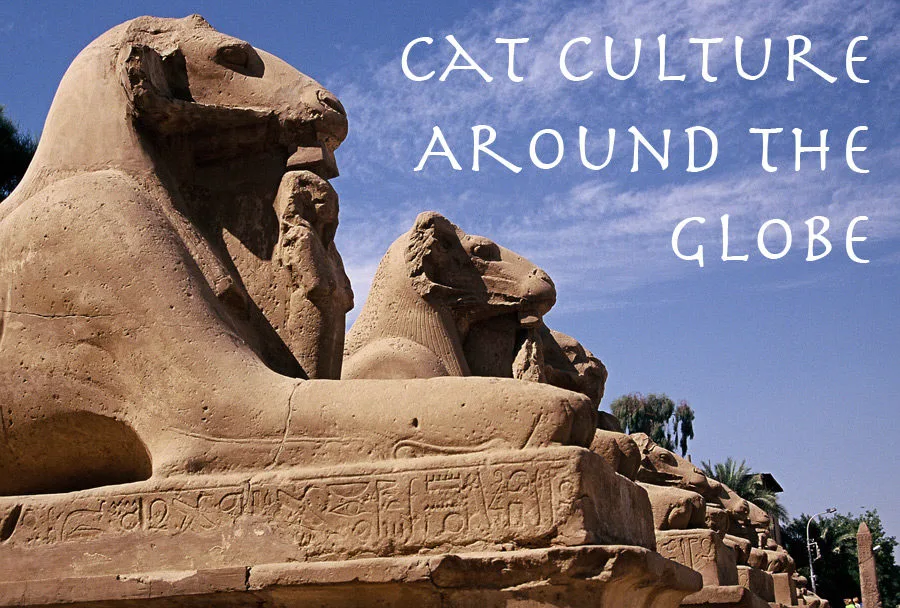
A quick scan of the Internet leaves no doubt that cats are having a moment. From cat videos to cat memes to special events like CatConLA, cats are leading the way in popular culture right now.
But cats are no flash in the pan; cat culture has been seen around the world for centuries, including in some of the globe’s most ancient civilizations.
Through the years, our work as guidebook writers has taken us many places, and just about every place we’ve landed, we’ve pounced on the opportunity to interact with the local cat population. We hope you’ll enjoy a look at three of our favorite feline stops to which our work has taken us around the world!
Egypt
From the lions of Luxor (above) to the magnificent Sphinx in Cairo, the ancient civilization’s connection to cats, both big and small, is seen everywhere. Cats were also often represented as goddesses Bastet and Sekhmet.
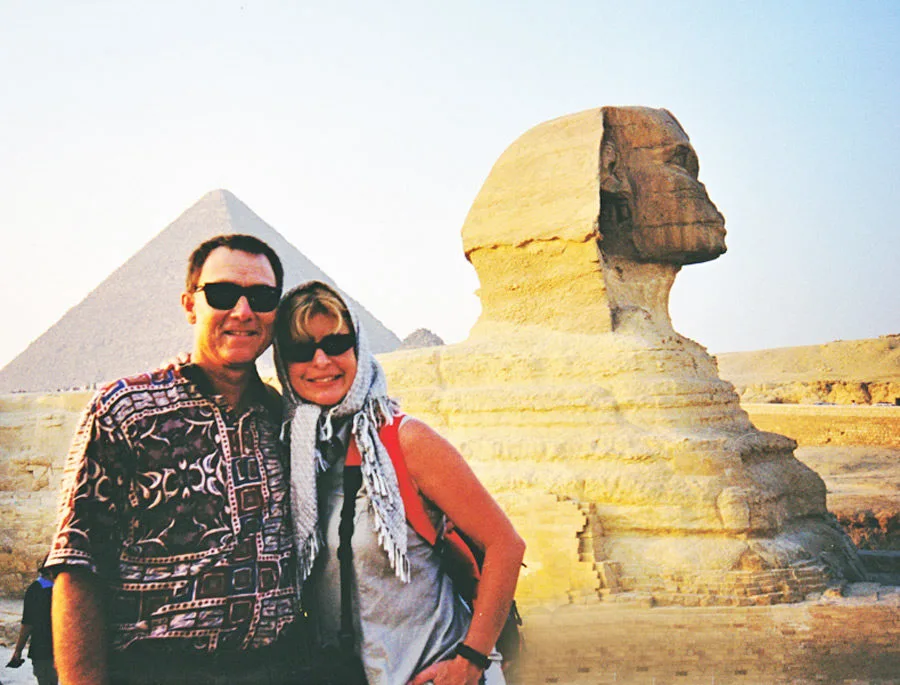
The Cairo Museum also includes cat mummies alongside their human counterparts. Although the exact manner of mummification has been lost to history, before his death in 29BC, Greek historian Diodorus
Siculus wrote, “Dead cats are taken away into sacred buildings, where they are embalmed and buried…after it has been treated with cedar oil and such spices as have the quality of imparting a pleasant odour and of preserving the body for a long time, they lay it away in a consecrated tomb.”
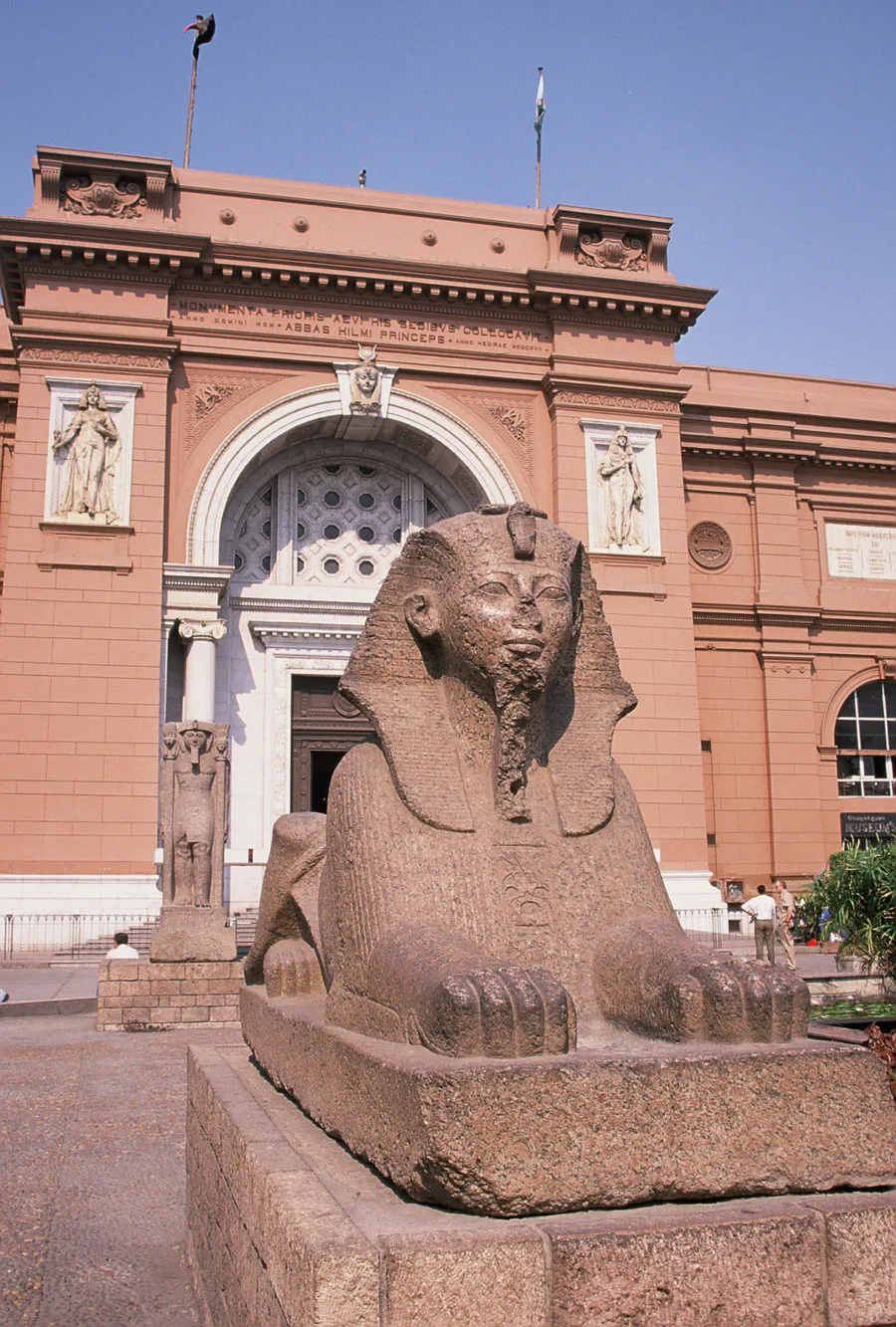
Rome
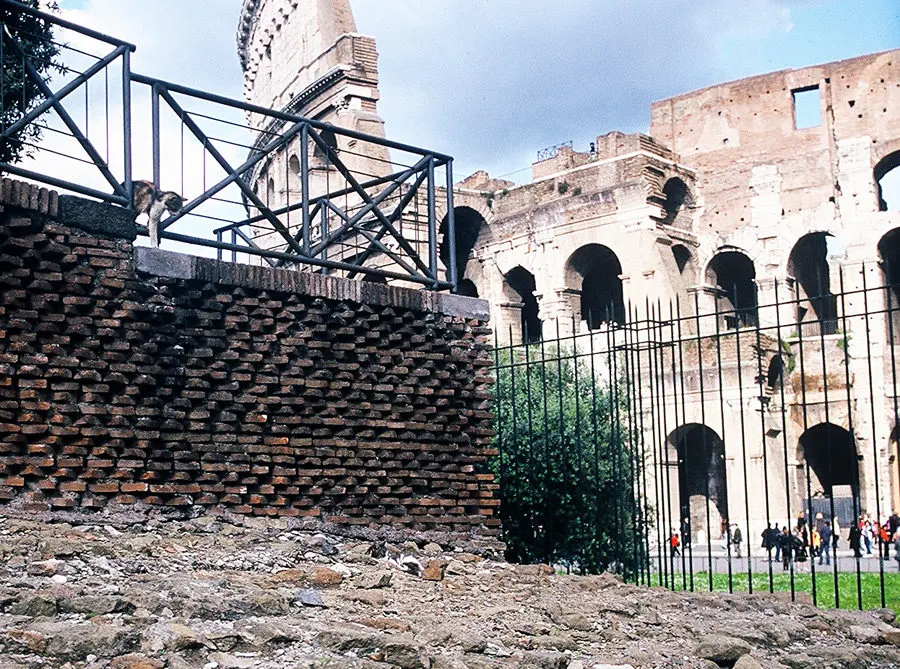
Visit downtown Rome and you can’t help but see some of the city’s many feral cats, who frequent areas like the Colosseum (above) and the Forum.
The Largo di Torre Argentina (which includes part of the Theater of Pompey, where Julius Caesar was assassinated) is home of undoubtedly one of the world’s most picturesque feral cat colonies.
Nearly 300 feral cats reside among the ancient ruins, cared for by the gattare, the women who feed the cats on a daily basis (an event that always draws public spectators).
Borneo

The island of Borneo (shared by Malaysia and Indonesia) is home to the Malaysian city of Kuching. The town whose nickname is “Cat City” may have been named for the Malay word for cat: kucing.
While others say the name comes from a Chinese word that means port, we prefer to go with the cat theory.
Whatever the origins of the name, there’s no doubting this city’s feline ties. The Great Cat of Kuching statue, above, is the city’s most famous; it’s often dressed up for special events (as it was for Chinese New Year, when we visited).
The city is also home to the Kuching North City Council statue featuring a pair of adult cats with a seven kittens. (My apologies for the blurry photo which was taken out of our moving taxi at the roundabout!)
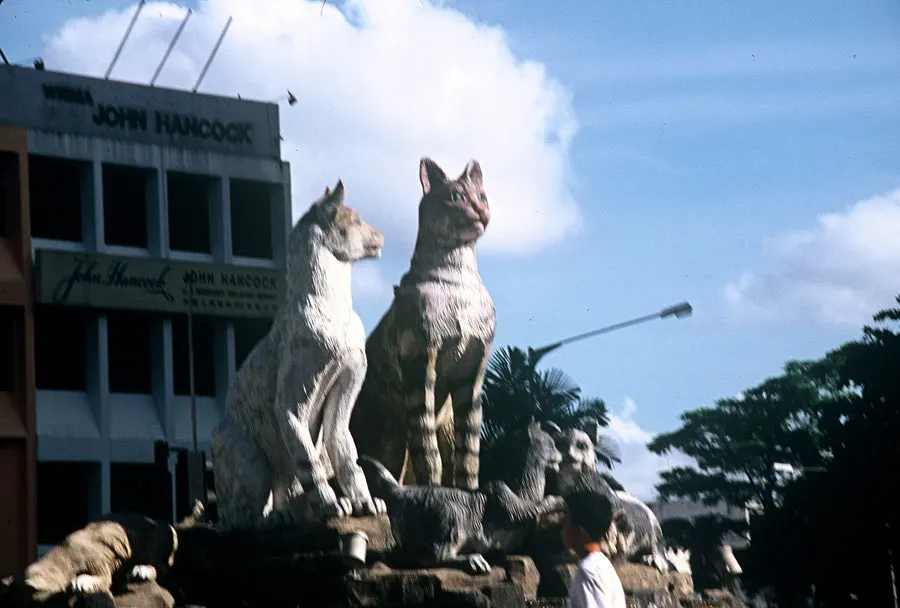
But the most cat-centric location is town is the Kuching Cat Museum, the first of its kind in the world when it opened in 1993. The museum is located in a massive building:
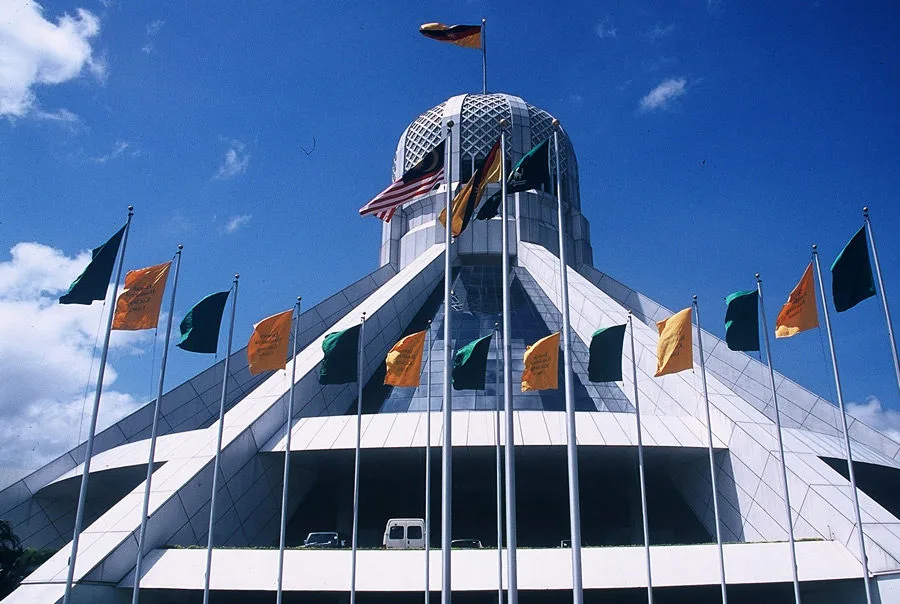
The museum contains four galleries devoted to our favorite felines with statues, artwork, cats in popular culture, and much more.
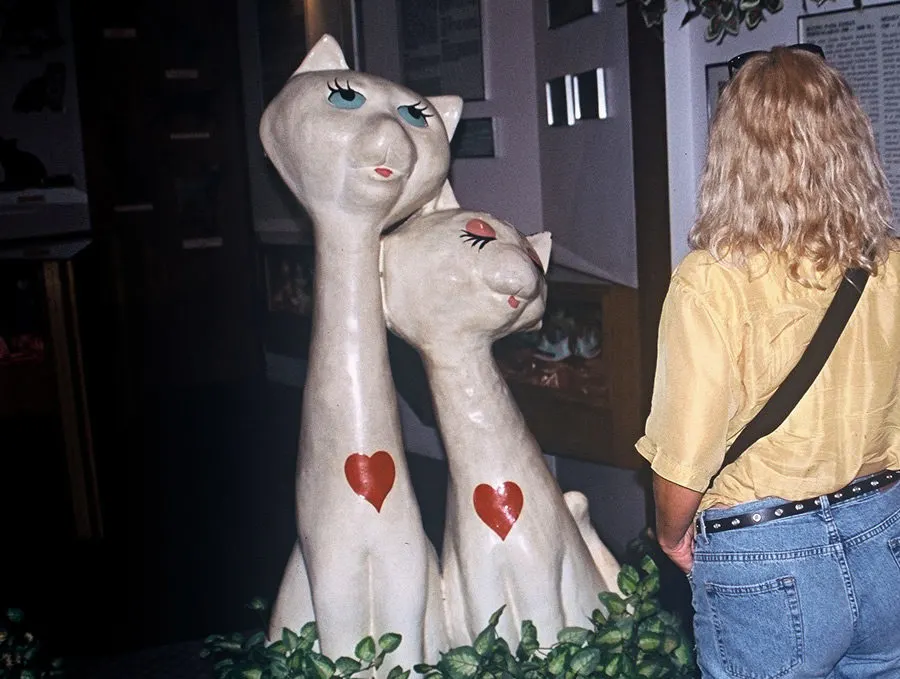
Since our visit, the museum has added this impressive entrance, a great photo opp:
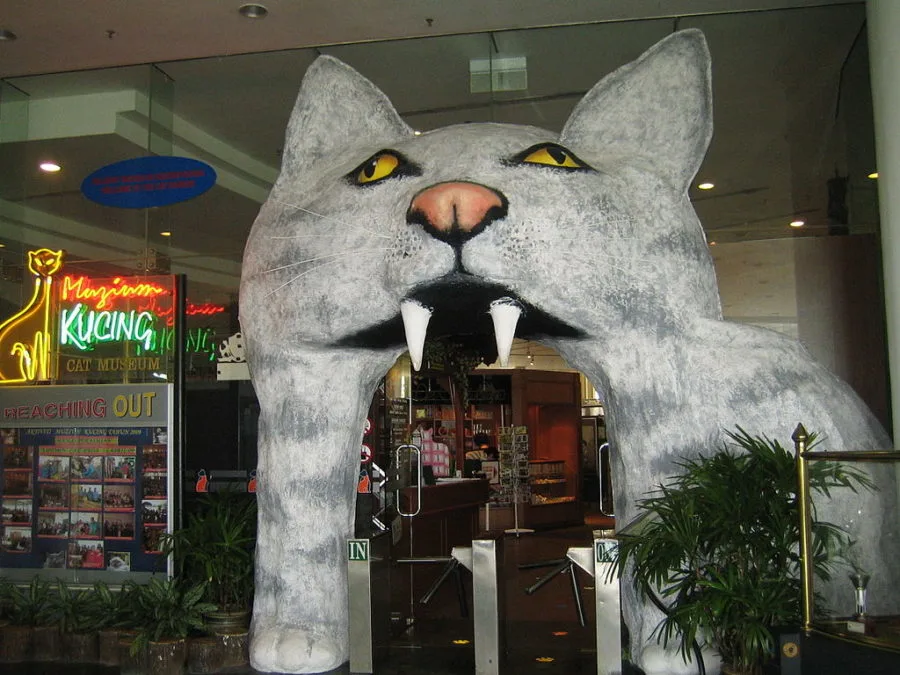
Photo courtesy Used under CC BY SA-2.0 license.
In case you think that Borneo’s cats are primarily those of artistic origins, have no fear: the island of Borneo is filled with felines. From Kuching, our travels took us throughout the state of Sarawak including visits to traditional longhouses, where I met this little girl:
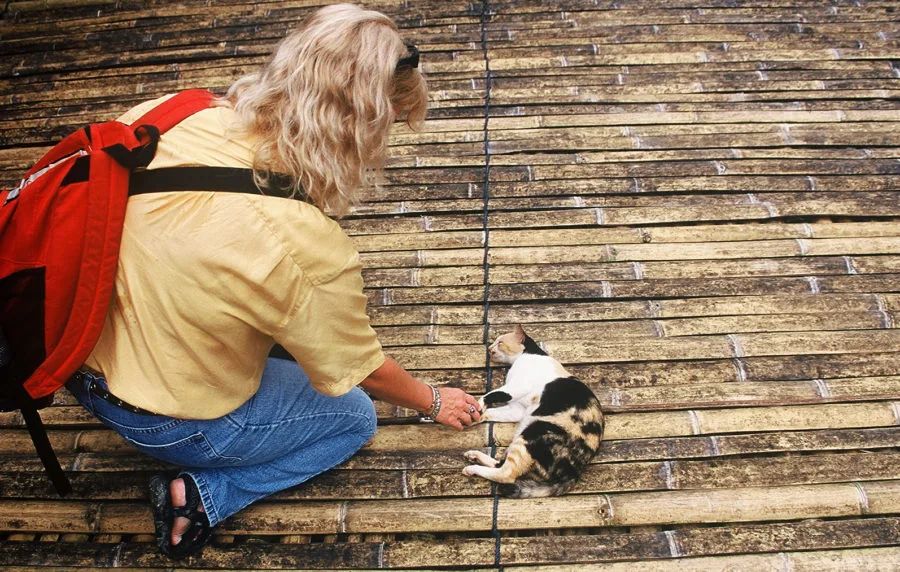
As you’ll see, she has a short tail, common to many housecats in Asia.
We hope you’ve enjoyed this trip down meow-mory lane to some of our favorite feline stops!
- 🎉 GIVEAWAY: Lord of the Pets Portrait of Your Cat! - November 26, 2024
- Review: Lord of the Pets Cat Portraits! - November 26, 2024
- Cat Adoption: FAQ You Might Have - June 28, 2024
